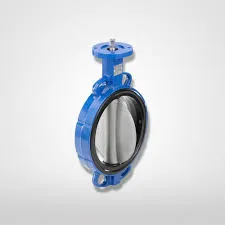Samh . 19, 2024 00:27 Back to list
ss ball valve flange type
Understanding SS Ball Valve Flange Type A Comprehensive Overview
Stainless steel (SS) ball valves are widely recognized for their durability, versatility, and exceptional performance in various industrial applications. Among the various configurations available in the market, the flange type is particularly popular. This article delves into the specifications, benefits, applications, and maintenance of stainless steel ball valve flange types, providing a thorough understanding for engineers and procurement specialists alike.
What is a Flange Type Ball Valve?
A flange type ball valve is designed to be mounted between two flanges in a piping system. This configuration allows for a secure connection, minimizing the risk of leakage and providing mechanical stability. Flange connections typically comply with industry standards such as ANSI, ASME, or DIN, which ensures compatibility with various piping systems. The ball valve's core component, the spherical disc, has a hole in its center, which allows fluid to flow through when aligned with the pipe. When the valve is turned 90 degrees, the hole is perpendicular to the flow path, effectively halting the fluid.
Key Features of SS Ball Valve Flange Type
1. Material Composition Stainless steel is renowned for its corrosion resistance and overall strength. These properties make it ideal for use in environments that may expose the valve to harsh chemicals or extreme temperatures. Common grades for stainless steel ball valves include 304 and 316, with 316 being preferred for more corrosive environments.
2. Size and Pressure Ratings Flange type ball valves come in various sizes, typically ranging from 1 inch to 12 inches, and are rated according to pressure classes, such as 150, 300, or 600. This flexibility allows engineers to select a valve suitable for their specific application needs.
3. Sealing Mechanism The sealing mechanism in a flange type ball valve often employs PTFE (polytetrafluoroethylene) or other high-performance materials, ensuring a tight seal and reducing the risk of leaks.
4. Ease of Installation and Maintenance The flange design facilitates easier installation and removal, making routine maintenance and inspection straightforward. This aspect is highly beneficial in industries where downtime must be minimized.
Advantages of SS Ball Valve Flange Type
1. Leak Prevention The flange connection provides a robust sealing mechanism that helps prevent leaks, which is crucial in many industrial applications, such as oil and gas, pharmaceuticals, and chemicals.
ss ball valve flange type

2. High Flow Capacity The ball design allows for a smooth and unrestricted flow, which significantly reduces pressure drops in the pipeline. This characteristic is advantageous in fluid systems requiring efficient material transfer.
3. Durability and Longevity Stainless steel's exceptional resistance to rust, corrosion, and wear contributes to a longer operational lifespan compared to valves made from other materials.
4. Versatility SS ball valves are adaptable to a wide range of applications, from water supply and sewage treatment to steam and chemical processing.
Applications of SS Ball Valve Flange Type
The flange type ball valve is used in a variety of industries. Some notable applications include
- Water Treatment Plants Ensuring safe and efficient chemical dosing and flow regulation. - Oil and Gas Industry Used in drilling and refining processes to control the flow of hydrocarbons. - Chemical Processing Ideal for handling aggressive chemicals due to their corrosion-resistant properties. - Food and Beverage Ensuring sanitary connections and flow control in food processing lines.
Maintenance Tips
Proper maintenance of SS ball valve flange types can extend their service life and ensure optimal performance. Regular inspection for leaks, monitoring of gasket integrity, and periodic lubrication of moving parts are essential practices. Additionally, it is crucial to follow manufacturer guidelines for installation and maintenance to avoid service disruptions.
Conclusion
In summary, stainless steel ball valves of the flange type provide a reliable and efficient solution for many industries. Their design, coupled with the inherent properties of stainless steel, makes them a popular choice for applications requiring durability and leak prevention. Understanding their features and maintenance requirements can further enhance their performance in the field.
Share
-
Reliable Wafer Type Butterfly Valves for Every IndustryNewsJul.25,2025
-
Reliable Flow Control Begins with the Right Ball Check ValveNewsJul.25,2025
-
Precision Flow Control Starts with Quality ValvesNewsJul.25,2025
-
Industrial Flow Control ReliabilityNewsJul.25,2025
-
Engineered for Efficiency Gate Valves That Power Industrial PerformanceNewsJul.25,2025
-
Empowering Infrastructure Through Quality ManufacturingNewsJul.25,2025